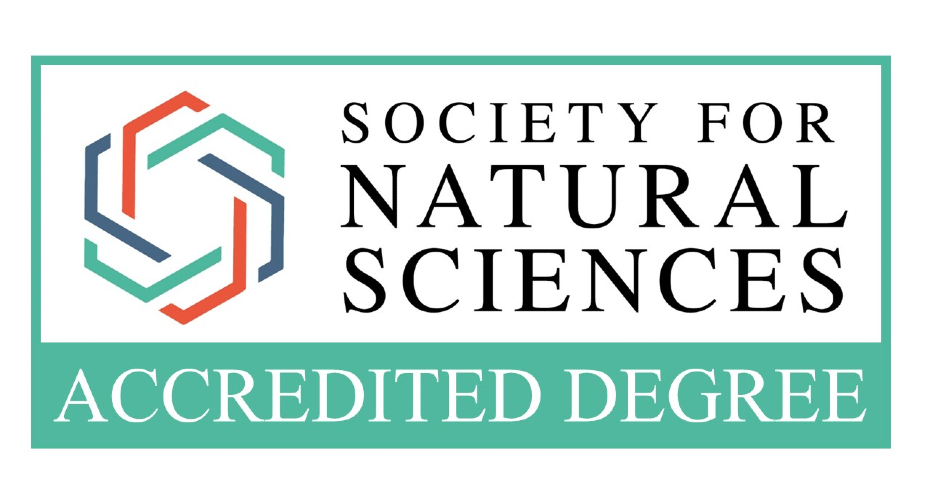| UCAS code | CGF1 |
|---|---|
| Duration | 4 year integrated degree programme: 1 year Foundation year plus 3 year undergraduate degree programme |
| Entry year | 2025 |
| Campus | Streatham Campus |
| Discipline | Natural Sciences |
| Contact | Web: Enquire online |
| Typical offer | Eligibility: UK students who fulfil the criteria as shown within our eligibility criteria below. |
|---|---|
Overview
We believe that fair access to higher education is a fundamental enabler for social mobility and are committed to delivering this through our education. We aim to widen participation and raise attainment - bridging gaps in retention, progression and success - to ensure our students enjoy the best possible outcome.
Our BSc Natural Sciences with Foundation Year has been designed explicitly for this purpose, to support UK students from Widening Participation backgrounds wishing to study Natural Sciences:
- It covers the core mathematics required to successfully complete the Natural Sciences degree programme at Exeter
- You’ll be learning in a friendly and structured environment and will be supported academically and personally as you prepare to study the Natural Sciences undergraduate degree
- Provided you achieve the specific progression criteria, you will progress into Year 1 of our BSc in Natural Sciences programme which has a Foundation Year
- Depending upon the qualifications you’ve gained prior to beginning the Foundation programme it may be possible to transfer to an undergraduate programme in Mathematics, Engineering or Physics which have a foundation year and provided you meet the entry requirements for that programme.
- International students looking for a foundation course, please visit our INTO page.
Find out more about the foundation year in our Foundation Year [pdf].
![]()
1st in the sector for student satisfaction in 6 out of 7 themes
National Student Survey 2023: Natural Sciences
![]()
3rd in the UK for Natural Sciences
The Times and The Sunday Times Good University Guide 2024
![]()
Study across Biology, Chemistry, Computer Science, Mathematics and Physics
![]()
Varied and exciting career options
Our students go on to excel in a huge variety of roles after graduating, including studying for a PhD.
Eligibility Criteria
| Qualification | Typical offer | Required subjects |
|---|---|---|
| A-Level | BBC | B in Maths and B in either Physics, Chemistry or Biology. We will also accept AS Maths at A or Core Maths at A in lieu of A level Maths. |
| IB | 28/554 | HL 5 in Maths and HL 5 in either Physics, Chemistry or Biology. |
| BTEC | DDM | Applicants studying one of the following BTEC Extended Diplomas will be considered without a GCE A-Level maths and science subjects: Engineering, Aeronautical Engineering, Electrical and Electronic Engineering, Manufacturing Engineering, Mechanical Engineering, Applied Science, Forensic and Criminal Investigation. |
| GCSE | 4/C | Grade C or 4 in GCSE English language. |
| Access to HE | 24 L3 credits at Distinction Grade and 21 L3 credits at Merit Grade | 12 L3 credits at Merit Grade in Maths and 12 L3 credits at Merit grade in either Physics, Chemistry or Biology. |
| T-Levels | T-Levels not accepted | N/A |
NB General Studies is not included in any offer.
In support of the University’s Access and Participation Plan this course is only open to UK domiciled students who meet our contextual offer eligibility criteria and who may not have met the entry requirements for first year entry or have not been able to take A-level Mathematics alongside a BTEC L3 Extended Diploma. Check if you are eligible to join this programme on our contextual offer webpages.
Accreditation
Please note: As part of our ongoing commitment towards improving the student experience at Exeter, we are introducing a new foundation level year to our Natural Science degrees from September 2022. The foundation course covers the core maths skills needed to progress onto our Year 1 of the BSc Natural Sciences with Foundation Year programme, or have the opportunity to transfer to Year 1 of another programme with a foundation year provided you meet the entry requirements for that programme. As a result of introducing the foundation year we are currently going through a process to expand our accreditation to include this programme.
Accreditations

This programme is accredited to meet the educational requirements of the Society of Natural Sciences (SocNatSci).
We’re really proud to launch our foundation programme pathways which demonstrate the University of Exeter’s commitment to widening access to our engineering, maths, physics and natural science programmes.
For any student who has not had the opportunity to demonstrate their true ability in A-level maths, whether through educational disadvantage, exceptional circumstances or making the wrong choices, this programme offers an alternative route into STEM at Exeter.
Read more from Professor Nicola King
Professor Nicola King
Associate Dean for Education
Course content
The Foundation Year is part of an integrated 4 year undergraduate degree programme. Please see our 'pathways' below for further information and details of the modules available on the degree programmes you can progress to from the Foundation Year.
The course comprises of 90 credits of core maths, to elevate students’ knowledge to A-level grade A standard, plus some aspects of the further maths curriculum, but concentrating on developing core mathematical skills.
The other 30 credits comprise a project that includes key skills for university study.
The modules we outline here provide examples of what you can expect to learn on this degree course based on recent academic teaching. The precise modules available to you in future years may vary depending on staff availability and research interests, new topics of study, timetabling and student demand.
The courses listed below are the pathway options available for these integrated 4 year undergraduate degree programmes. In the second term of your Foundation Year, you will specialise in your chosen course:
- Engineering with Foundation Year BEng
- Civil Engineering with Foundation Year BEng
- Electronic Engineering with Foundation Year BEng
- Mechanical Engineering with Foundation Year BEng
- Mathematics with Foundation Year BSc
- Natural Sciences with Foundation Year BSc
- Physics with Foundation Year BSc
- Computer Science with Foundation Year BSc
- Data Science with Foundation Year BSc
Exeter’s foundation has been created to support and prepare students for the challenges of an undergraduate degree in Mathematics, Physics, Natural Sciences or Engineering.
The programme has been designed for students with the passion and aptitude for a degree, but who may have missed our standard entry criteria for various reasons, and is a call to widen participation and increase access to higher education.
Read more from Dr Houry Melkonian
Dr Houry Melkonian
Foundation Year Course Director
Fees
Tuition fees for 2023 entry
UK students: £9,250 per year.
Scholarships
The University of Exeter has many different scholarships available to support your education, including £5 million in scholarships for international students, such as our Global Excellence Scholarships*. Financial support is also available for students from disadvantaged backgrounds, lower income households and other under-represented groups to help them access, succeed and progress through higher education.
* Terms and conditions apply. See online for details.
Learning and teaching
The way you learn at university may be different from what you have experienced before. Depending on your course, you may encounter a variety of teaching methods.
In the Foundation year of this programme, you will experience a range of teaching and learning activities including lectures, workshops, tutorials, group projects/presentations and/or seminars. The mathematics modules at this stage comprise of 90 credits in total, while 'Science: Skills and Culture' module is 30 credits. You should expect your total workload to average about 40 hours per week during term time including guided independent study hours.
Visit our course pages for details of the Learning and Teaching methods on the BSc Natural Sciences or BSc Physics, BEng Engineering, BEng Mechanical Engineering, BEng Electronic Engineering, BEng Civil Engineering and BSc Mathematics degree programmes for the subsequent years of your chosen degree programme.
A research and practice led culture
You will benefit from teaching by academic staff comprising of internationally-recognised experts active across a wide range of topics in your chosen degree programme. As you progress through your degree, you will hear about the latest research and have opportunities (for example, the independent research project) to become involved in a research project yourself.
Private study and support
You will be allocated a personal tutor who will be happy to advise or put you in touch with support services, and you are encourage to discuss subject related questions with tutors and lecturers who advertise regular office hours. Extra support is available, for example through our peer mentor scheme, and we have an active student-staff liaison committee.
Assessment
Modules are assessed by a combination of summative assessments. You must pass your foundation year and meet the progression criteria to progress to Year 1 of the BSc in Natural Sciences with a foundation year, but the results do not count towards your degree classification.
Your future

Our aim is to teach a syllabus that you will find intellectually challenging, rewarding and stimulating. In addition, to help you develop as a scientist so that you can make a real contribution to the exciting research taking place at the University of Exeter and to important scientific developments long after your graduation.
Many employers look for graduates with a background in a broad based multidisciplinary science degree, as it allows them to tackle problems holistically.
Our courses help students to develop a wide range of key skills for employment and further study such as analytical problem solving, teamwork, and organising and communicating information.
Upon completing one of our degrees our graduates are highly employable and have found positions working in a wide variety of related roles including laboratory-based positions, industry, law, business, management, teaching and government.











